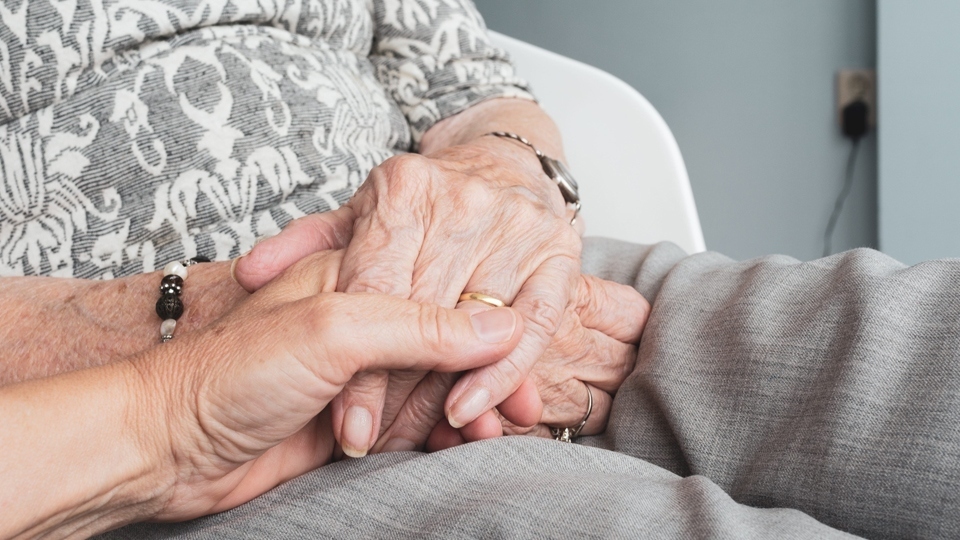NHS launches new dementia diagnosis drive
Date published: 28 December 2022

In a new dementia drive, the NHS, through GPs and local hospitals, will seek out care home residents who do not have a dementia diagnosis and ensure they are given a full face-to-face assessment at their home
Hundreds more people will be diagnosed with dementia thanks to a new specialist service being set up across the country, the NHS announced today (Wednesday).
Care home residents will be assessed for the condition by specialist nurses and other healthcare professionals with 14 new pilot schemes rolled out backed by almost £1 million.
But family and friends can also play a key role in spotting signs of dementia when visiting older people this Christmas.
During the pandemic, the number of people diagnosed with dementia reduced by more than 28,000 with elderly people isolated from others to protect themselves from Covid, meaning family members and others had less chance to spot that their loved one may have dementia.
In a new dementia drive, the NHS, through GPs and local hospitals, will seek out care home residents who do not have a dementia diagnosis and ensure they are given a full face-to-face assessment at their home.
The clinician will review a person’s use of anti-psychotic medication as well as speaking to the care home resident’s family and friends to determine whether they have dementia.
A dementia diagnosis helps NHS and care home staff manage people’s condition better and ensures they are not prescribed unnecessary medication.
NHS England is giving £900,000 to launch two pilots in each of England’s seven regions following a successful trial in Norfolk.
Mersey Care NHS Foundation Trust and Cheshire and Wirral Partnership Trust in collaboration with Age UK Wirral are both taking part for the North West.
More than one hundred care home residents were given a face-to-face assessment in Norfolk, with 95 per cent receiving a dementia diagnosis.
The head of dementia services in England encouraged people who are meeting over the festive period to watch out for signs of the condition.
Professor Alistair Burns, NHS England’s national clinical director for dementia, said: “The pandemic has naturally had an impact on the number of people diagnosed with dementia, with elderly people seeing fewer people to protect themselves from Covid-19.
“The NHS is determined to ensure those who developed dementia during the pandemic are given a diagnosis as it will open up doors to further support for people and their families who suffer from this heart-breaking disease.
“There are many things we can do in the NHS to care for and support people if they do get a diagnosis, and importantly there is support for their families and carers too.
“So if you have noticed over the festive period that someone has symptoms, please encourage them to visit their GP for an assessment – the sooner someone is seen the quicker the NHS can support them.”
Something as simple as forgetting to put the oven on for the Christmas turkey may be a warning that a loved one is experiencing the early stages of dementia.
Other things to look out for are:
Confusion in a new environment – someone may become disorientated or confused when in a new place. A family holiday in a hotel can be a time when a person can become confused any may include trying to get into the wrong bedroom.
Forgetting the names of loved ones to the extent that it causes embarrassment.
Being at a relative’s house where the lay out is unusual could put a person’s memory and orientation to the test.
Forgetting someone’s present – it might not be a very close relative but sometimes a niece or a nephew’s present can be forgotten as it slips from memory.
Complex tasks such as cooking a big Christmas dinner for a large number of people. The sign could be something as obvious as forgetting to switch the oven on, forgetting to put the sprouts on or cooking things in the wrong order.
The NHS Long Term Plan committed to offering better support for people with dementia through more support in the community through enhanced community multidisciplinary teams and greater personalised care.
The latest NHS figures show that 451,992 people in England have a dementia diagnosis, up 2.8 per cent on last year.
Referrals to memory services have returned to pre-pandemic levels, with 301,218 received in 2021/22.
Do you have a story for us? Want to tell us about something going on in and around Oldham? Let us know by emailing news@oldham-chronicle.co.uk , calling our Oldham-based newsroom on 0161 633 2121 , tweeting us @oldhamchronicle or messaging us through our Facebook page. All contact will be treated in confidence.




